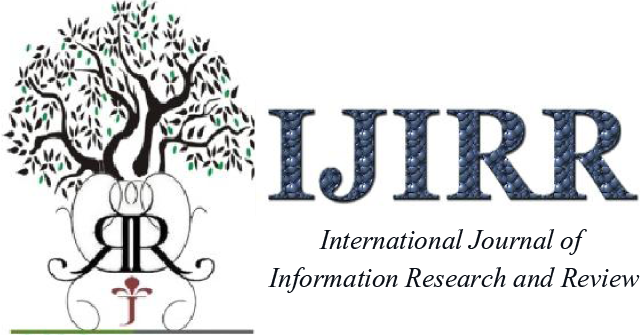Editorial
Volume 2 Issue 5 - 2018
Effect of Food Additives on the Gut Microbiome in Relation to Human Health
1College of Food Science and Nutritional Engineering, China Agricultural University, Beijing 100083, China
2Department of Medicine and Therapeutics, Institute of Digestive Disease, State Key Laboratory of Digestive Diseases, LKS Institute of Health Science, The Chinese University of Hong Kong, Hong Kong, China
2Department of Medicine and Therapeutics, Institute of Digestive Disease, State Key Laboratory of Digestive Diseases, LKS Institute of Health Science, The Chinese University of Hong Kong, Hong Kong, China
*Corresponding Author: Tao Zuo, Department of Medicine and Therapeutics, Institute of Digestive Disease, State Key Laboratory of Digestive Diseases, LKS Institute of Health Science, The Chinese University of Hong Kong, Hong Kong, China.
Received: April 04, 2018; Published: April 12, 2018
The interplay between the host and host-associated gut microbiota is an area of increasing interest during the recent decade and the fundamental roles of gut microbiome in human health is incrementally being recognized, though it still needs further in-depth understanding [1]. Accumulating evidence have confirmed the association between the dysbiosis of gut microbial composition and etiology of human metabolic, immunological, neurological diseases [2,3]. Gradually, the causal or consequential relations of gut microbiota with various diseases, including inflammatory bowel disease [4], cancer [5,6], obesity [7,8], diabetes [9], cardiovascular disease [10,11], liver disease, neurodegenerative disorders and autism, are also being revealed [2].
Human gut microbiome composition is largely effected by the genotype and physiology of host [12], as well as many environmental factors associated with lifestyle and diet [13,14]. Particularly, diet could rapidly and reproducibly alter the human gut microbiome in microbial activity and gene expression [15]. Therefore, attempts were carried on targeting the diet-microbiota interaction as moderators of human metabolism [16]. Numbers of studies have also clarified the relationship between gut microbiota and different dietary interventions, such as the plant-based diet, animal-based diet, or western-style diet [15,17]. However, other ingredients in diet, like food additives, did not receive enough attention and are recently being unraveled [18-24], especially when considering their chronic effect on human health in low dosages.
Food additives are synthetic or natural substances that are added to foods to improve food color, aroma and taste, and to meet the needs of preservation and processing technology. The potential effect of food additives on human health has been a long-standing concern, and recently is complicated given the intensive metabolic activities of gut microbes. Non-caloric artificial sweeteners (NAS) were introduced over a century ago as means for providing sweet taste to foods without the associated high energy content of caloric sugars, regularly consumed by lean and obese individuals alike [18]. Studies demonstrate that consumption of commonly used NAS formulations drives the development of glucose intolerance through induction of compositional and functional alterations to the intestinal micro biota [19]. The impact of dietary emulsifiers on the mouse gut micro biota was also conducted by Benoit Chasseing and his colleague [20,21]. Administration of the emulsifier’s carboxyl methyl cellulose (CMC) and polysorbate-80 (P80) via drinking water promoted colitis and metabolic syndrome in mice, which was associated with micro biota encroachment, altered micro biota composition, and increased pro-inflammatory responses. Furthermore, transplant of low-grade inflammation-associated phenotypes along with the unbalanced suspensions of human intestinal microbial ecosystem indicates that the direct effects of these emulsifiers on the micro biota are sufficient to drive low-grade inflammation and metabolic disease. Titanium dioxide (TiO) nanoparticles, which are also widely used as in food additive industry or in pharmaceutical formulations to provide a whitening effect, were also reported to worsen intestinal inflammation in the dextran sodium sulfate (DSS) mouse model of colitis [22]. Salt, another essential micronutrient with no caloric value, has been associated with the development of obesity, diabetes and other disorders in recent study [23]. Researches show that high intake of salt activates the aldose reductase-fructokinase pathway in the liver and hypothalamus, leading to endogenous fructose production with the development of leptin resistance and hyperplasia that cause obesity, insulin resistance, and fatty liver [23]. Moreover, salt can also lead to hypertension and cardiovascular disease when consumed in excess. Study report that high salt intake affects the gut microbiome in mice, particularly by depleting Lactobacillus murinus and drives autoimmunity by inducing T helper 17 (TH17) cells, which can contribute to hypertension [24].
It is becoming increasingly accepted that food additives are safe within specified limits. Some long-term safety assessments have also been carried out according to people's prior understanding on human health. However, as the veil of the new functional organ gut microbiota is being uncovered, health/safety problems related to gut microbiota should be further explored and confirmed. Therefore, improved mechanistic understanding of heath/disease implicated with food additives or other risk diet factors and gut microbiome should be paid more effort.
References
- Bäckhed F., et al. "Host-bacterial mutualism in the human intestine." Science 307.5717 (2005): 1915.
- Li D., et al. "The gut microbiota: A treasure for human health." Biotechnology Advances 34.7 (2016): 1210-1224.
- Li, D., et al. "Targeting the gut microbiota by dietary nutrients: a new avenue for human health." Crit Rev Food Sci Nutr (2017).
- Nishida A., et al. "Gut microbiota in the pathogenesis of inflammatory bowel disease." Clinical Journal of Gastroenterology 11.1 (2018): 1-10.
- Garrett W S. "Cancer and the microbiota." Science 348.6230 (2015): 80-86.
- Daillère R., et al. "Enterococcus hirae and Barnesiella intestinihominis Facilitate Cyclophosphamide-Induced Therapeutic Immunomodulatory Effects." Immunity 45.4 (2016): 931-943.
- Ridaura VK., et al. "Cultured gut microbiota from twins discordant for obesity modulate adiposity and metabolic phenotypes in mice." Science 341.6150 (2013): 1241214-1241214.
- Liu Ruixin., et al. "Gut microbiome and serum metabolome alterations in obesity and after weight-loss intervention." Nature Medicine 23.7(2017): 859-868.
- Vaarala O. "Gut microbiota and type 1 diabetes." Review of Diabetic Studies Rds 9.4 (2012):251-259.
- Koeth Robert A., et al. "Intestinal microbiota metabolism of L-carnitine, a nutrient in red meat, promotes atherosclerosis." Nature Medicine 19.5 (2013): 576-585.
- Erdmann CC. "Intestinal Microbial Metabolism of Phosphatidylcholine and Cardiovascular Risk." New England Journal of Medicine 368.17 (2013): 1575-1584.
- Hall Andrew Brantley., et al. "Human genetic variation and the gut microbiome in disease." Nature Reviews Genetics 18.11(2017): 690-699.
- Carmody RN., et al. "Diet dominates host genotype in shaping the murine gut microbiota." Cell Host & Microbe 17.1(2015):72-84.
- Kaczmarek JL., et al. "Complex interactions of circadian rhythms, eating behaviors, and the gastrointestinal microbiota and their potential impact on health." Nutrition Reviews 75.9 (2017): 673-682.
- David LA., et al. "Diet rapidly and reproducibly alters the human gut microbiome." Nature 505.7484 (2014): 559-563.
- Sonnenburg JL and F Bäckhed. "Diet-microbiota interactions as moderators of human metabolism." Nature 535.7610 (2016): 56-64.
- Zhang C., et al. "Structural resilience of the gut microbiota in adult mice under high-fat dietary perturbations." Isme Journal 6.10 (2012): 1848-1857.
- Suez J., et al. "Non-caloric artificial sweeteners and the microbiome: findings and challenges." Gut Microbes 6.2 (2015): 1-7.
- Suez J., et al. "Artificial sweeteners induce glucose intolerance by altering the gut microbiota." Nature 70.7521(2014): 181-186.
- Benoit Chassaing., et al. "Dietary emulsifiers impact the mouse gut microbiota promoting colitis and metabolic syndrome." Nature 519.7541 (2015): 92-96.
- Chassaing B., et al. "Dietary emulsifiers directly alter human microbiota composition and gene expression ex vivo potentiating intestinal inflammation." Gut 66.8 (2017): 1414-1427.
- Ruiz Pedro A., et al. "Titanium dioxide nanoparticles exacerbate DSS-induced colitis: role of the NLRP3 inflammasome." Gut 66.7 (2016): 1216.
- Lanaspa MA., et al. "High salt intake causes leptin resistance and obesity in mice by stimulating endogenous fructose production and metabolism." Proceedings of the National Academy of Sciences 115.12 (2018): 3138-3143.
- Wilck N., et al. "Salt-responsive gut commensal modulates TH17 axis and disease." Nature 551.7682 (2017): 585-589.
Citation:
Shangyun Lu and Tao Zuo. “Effect of Food Additives on the Gut Microbiome in Relation to Human Health”. Nutrition and Food
Toxicology 2.5 (2018): 474-476.
Copyright: © 2018 Shangyun Lu and Tao Zuo. This is an open-access article distributed under the terms of the Creative Commons Attribution License, which permits unrestricted use, distribution, and reproduction in any medium, provided the original author and source are credited.



































 Scientia Ricerca is licensed and content of this site is available under a Creative Commons Attribution 4.0 International License.
Scientia Ricerca is licensed and content of this site is available under a Creative Commons Attribution 4.0 International License.